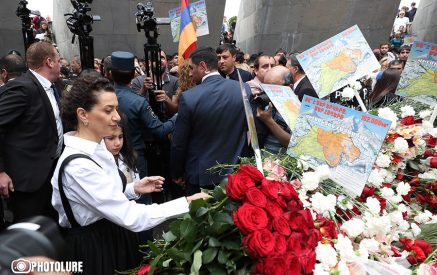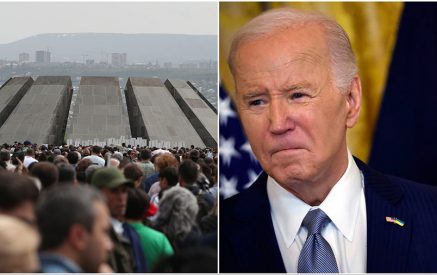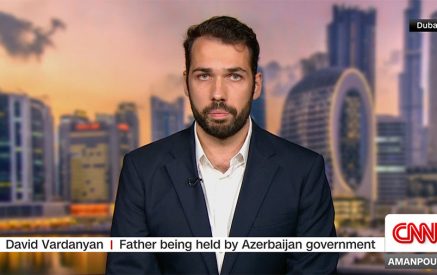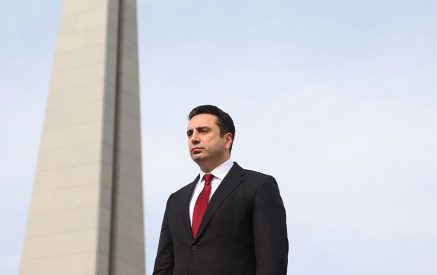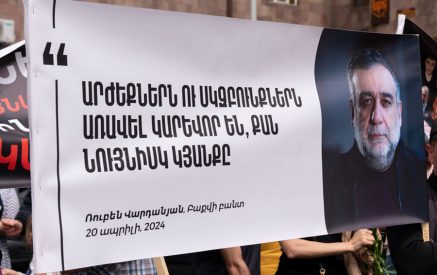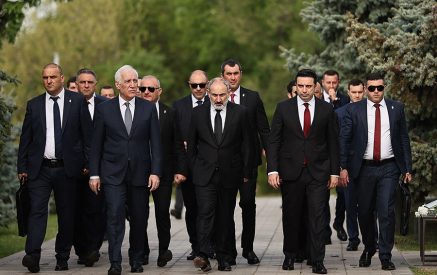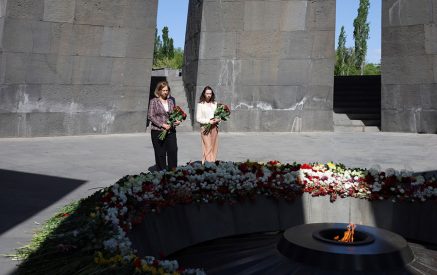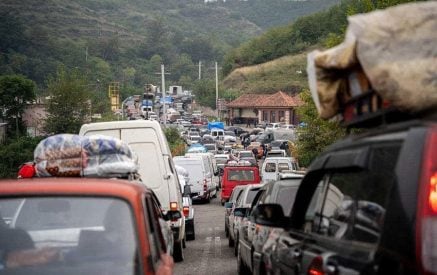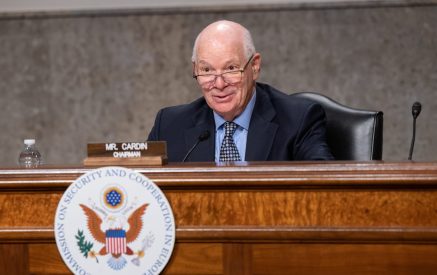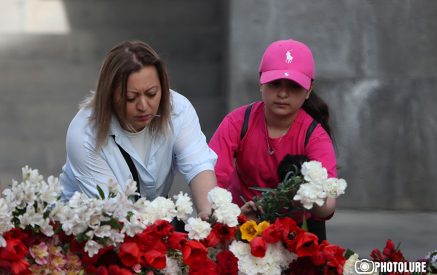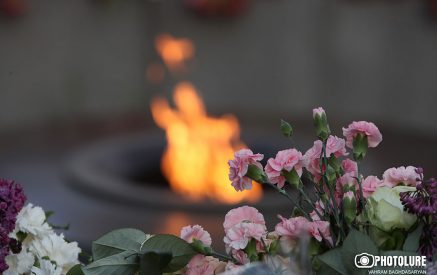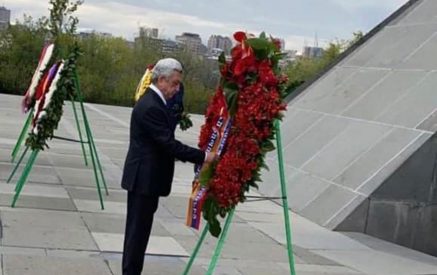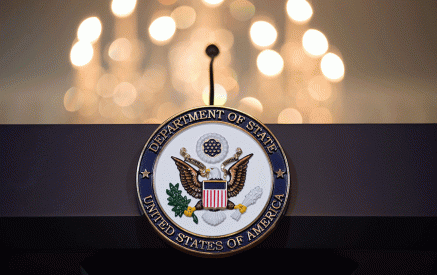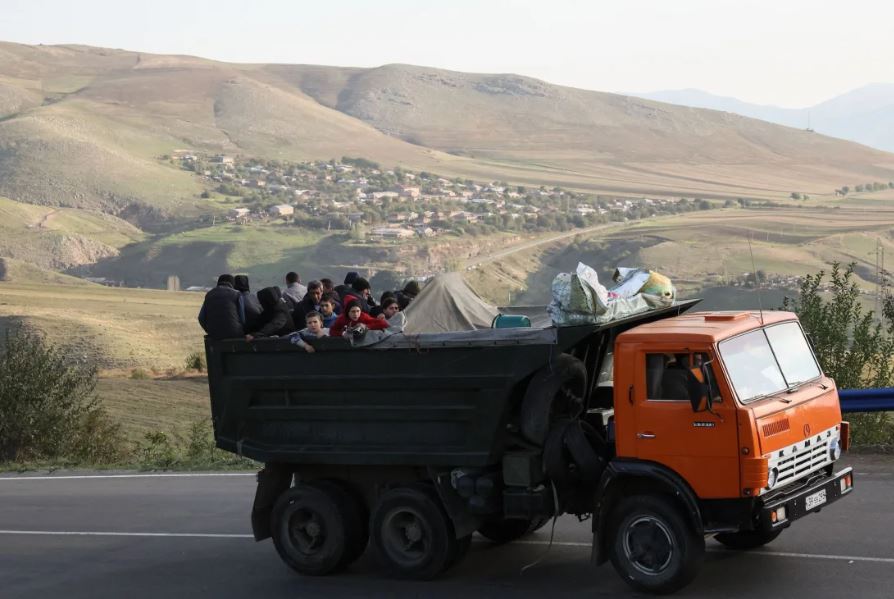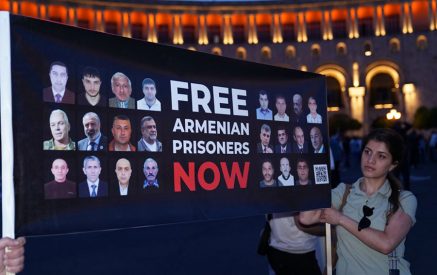Stepan Piligian
How should we react to unspeakable tragedies? Are we limited to sadness, anger, depression and even hatred? How much of our resources are reserved for productive responses, or are we too comfortable with being a victim? Our history is filled with a tragic excess of dark days, and very few generations have escaped the personal experience of loss. It gives us an unfortunate abundance of opportunity to build resiliency. Several organizations represent responsible advocacy, such as the ANCA and the Armenian Assembly, but we individually have to show the initiative to utilize that opportunity.
Making a commitment to contribute sometimes eludes us, as we may find temporary comfort in casual expressions of support. Activists differentiate themselves through their sustained effort, fueled by a long-term mission. The month of April, when we remember the Genocide, is an appropriate time for each of us to re-examine our contributions to the greater Armenian nation.
Read also
When the Turks committed genocide from 1915-23 (or, as we have come to understand, starting with the Hamidian massacres in the mid 1890s), their plan was to separate the men from the communities, murder them and implement the forced deportation of the remaining population. This is why the deportations consisted primarily of the elderly, women and children. Those who survived this barbaric treatment would be scattered throughout the world with eventual assimilation. Fourth and fifth generation Armenians skillfully demanding justice are the Turks’ worst nightmares. For years, we have told ourselves in church halls and centers around the world that the cause for justice will perish only when Armenians forget. We cannot predict the endpoint of justice, but we can be certain that if we choose to move on, the “Hai Tahd” will write its final and unresolved chapter. This is the burden that each generation carries: to educate, motivate and inspire succeeding generations to continue the struggle until its completion. Inheriting this responsibility from our parents is an honor we hold for previous and future generations. We have no right to abandon that cross that we bear.
Over the course of the last 100 years, the political dynamics have changed, and the messaging has evolved. For example, I mentioned that the generational transfer of the struggle has been problematic for the Turks. Erdogan has often admonished the Armenian diaspora as a revenge-driven entity in an effort to drive a wedge between the diaspora and the homeland. Turkey wants to deal only with Armenia and the current geopolitical realities. The diaspora is an annoying and dangerous reminder of its crime and failure. If Turkey is angry with the diaspora and wishes to vent its frustration, then I suggest looking in the mirror. It is the successive Turkish governments, going back to the Ottoman criminals to the Republican era, that created the diaspora through their genocidal policies. In our current struggle, the word “Turk” is now defined as not only the genocide deniers to the west but also their subordinated Azerbaijani cousins to the east.
For more than 36 years, Azerbaijan has maintained a policy of oppression, barbaric unilateral attacks and genocide against the Armenian people in Azerbaijan, Artsakh and Armenia proper. It began with the pogroms in Sumgait, Baku and other established communities in Azerbaijan. Armenians were murdered and attacked, and more than 350,000 Armenians were forcibly deported and dispossessed between 1988-91. While the world acknowledges the Azeris who were displaced in the first Artsakh War, little is recalled about the purge of the Armenians in Azerbaijan.
Since the first Artsakh War, the aggressive policies have continued with attacks on the border villages of Tavush and Syunik. A regular violator of international law, Azerbaijan occupies sovereign land of Armenia in the eastern border area. A master of duplicity (a learned behavior from Turkey), Aliyev has conveniently advocated peace and non-military solutions while ruthlessly attacking Artsakh and Armenia. Perhaps the most devastating criminal act was the starvation plan and genocidal blockade of Artsakh followed by Azerbaijan’s military assault, resulting in the occupation of Artsakh in 2023. Once again, the Armenians were forced to accept the nightmare of deportation, hostages and territorial loss. For this, Azerbaijan has earned the identity of a genocidal oppressor and criminal rogue nation on a historical par with the Turks.
The presence of Azerbaijan in the struggle for Armenian justice elevates another point we have made both to ourselves and the general public for years. A major argument for genocide recognition, aside from the fact of the crime, has been that a genocide forgotten is a genocide that continues. In other words, the criminal perpetrators are motivated by the ambivalence of the world. If no one cares, one can commit the act again or continue policies of harassment and extermination.
This is the mentality of Azerbaijan led by the criminal Aliyev family. As long as Aliyev stays on the offense on foreign affairs, he succeeds in deceiving most of his citizens. The Azeri regime has little respect for international law, violates the sovereignty of others and bizarrely claims that Armenia, a nation established two millennia before the birth of Jesus Christ, is in reality Azerbaijani land. Of course, this preposterous notion is another ploy to further the resurrected and ill-advised pan-Turkic dream of uniting Turkic nations. The Turkic alliances proved in 1915, and again in this century, that they will resort to genocide to further this warped idea. Unfortunately, the forgotten genocide notion was more than a public relations slogan. It is true, and we are living the horror of that evil again.
Our message must be clear: evil unabated and without consequences enables continuation. In the late 19th century, it was the Hamidian regime that introduced mass murder to the Armenian citizens of the Ottoman Empire. The Armenians’ crime was having the audacity to live their lives with dignity. The “reformist” Ittihads massacred thousands in Adana in 1909. After the Genocide of 1915, atrocities continued in Cilicia in 1920-21 and in the eastern regions by Azeris. As a result of Stalin’s “award” in 1922-23, Nakhichevan was emptied of its indigenous Armenian population and subjected to cultural genocide over the succeeding decades. An oppressed population in Artsakh petitioned for self-determination legally and peacefully from 1988-91.
The Azeris responded with unprecedented violence that continued for decades. While asking for a ceasefire in 1994, the Azeris continued to attack the border regions of both Artsakh and Armenia. Despite Russia’s security guarantee after the 2020 war, the Azeris continued to attack, resulting in death and destruction. The next chapter of this strategy was an illegal blockade for months, culminating in a military assault that resulted in the forced deportation of 120,000 Armenian citizens in addition to the holding of civilian, military and government officials as hostages. The pan-Turkic assault on the sovereignty and existence of the Armenian people has been a continuum for over 130 years.
There is concern that recognition of the Armenian Genocide as a standalone issue can easily be subordinated as a historical footnote without justice. The long awaited U.S. recognition illustrates this point. While President Biden’s statement was welcomed, he also made it clear that he does not hold the current Turkish government responsible. So what’s the point? This is exactly what we should be concerned about. Statements about historical crimes with no connection to the ramifications of the act are empty. Genocide is a crime, defined by the United Nations and endorsed by the vast majority of the world’s nations, including Turkey and the United States. If it is genocide, then international law requires accountability for the crime. Obviously, this is a “have it both ways” policy. This is what happens when we allow the narrative to be confined to historical recognition. The facts suggest that this policy of extermination transverses Turkish governments, Turkic nations and geopolitical climates as a common thread in their thinking. From manipulating the Constantinople Patriarchate to holding community properties, Turkish policy, both domestic and foreign, has been to marginalize and weaken the existence of the Armenian state and physical presence in our historic homeland. In the 2020 war, Turkey was a full participant with weaponry, military leadership and technology.
Recognition decoupled from the crime of genocide is useless. The Turkic criminal intent through various mechanisms, both subtle and overt, must be countered by a full-scale integration with the safety and security of Armenia. Azerbaijan has proven without a doubt to be an unreliable negotiating partner.
Despite recognizing the international border in 1991 (Alma-Ata Declaration), the Azeris demand the surrender of certain Armenian territories. It is also clear that Aliyev is beholden to Erdogan for his support since 2020; therefore, it is a reasonable assumption that when Azerbaijan talks, Turkey has already given its approval. Armenia is correct in pursuing reliable security partners, given Russia’s duplicity in Artsakh and the failure of the CSTO to fulfill its obligations. The long history of continuous threats to Armenian life by the Turkish alliance is the reason for new security measures. It also links the message of Armenian justice to the current need for security.
We currently have lost Western Armenia, Nakhichevan and Artsakh to the genocidal practices of the Turkish alliance. This is our integrated message for April 2024. The threats are real and have existed continuously since the 1890s, despite wars, peace treaties and commitments. Our messages must be integrated and link history with the geopolitical realities. All April 24 commemorations worldwide should connect justice for the Genocide to Armenia’s security and Artsakh. It is common to oppose the separation of historical acknowledgement from the realization of justice. The diaspora has a significant responsibility and must align more effectively with the homeland. When our politicians speak at April 24 rallies in Times Square or Los Angeles, they must advocate in the context of the current crimes. Speaking about April 24 as a standalone historical event is patronizing and ineffective. It is our responsibility to control the narrative and connect history and current crimes to accountability. I encourage everyone to become informed on this pattern so that we can represent our nation’s interests with clarity.





































